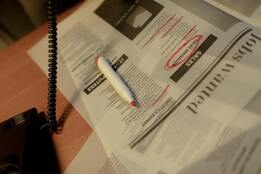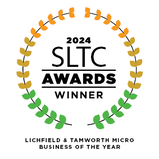|
Congratulations if you have got an interview, be proud! Statistics today show that only about 2% of applicants receive an interview and making it this far is impressive. Are you sat there worrying about how you will demonstrate your skills, capability and experience to the interviewers? This blog will give you some hints and tips on how to show that you are the right person for the role. #1 Research the Company Often you will be asked what you know about the company usually through a question such as “What do you know about the Company?”. The interviewer is looking to see that you are you curious about the company, ask the right questions and know how to ask the right questions. Tip 1: Look at the company values, mission statement, company news, board reports and blog posts so that you can demonstrate that you are fully aware of what makes the company different and how you would apply your qualifications and interest not just to the job, but also to the company as well. #2 Research the Interviewer Find out a little bit about the interviewer or hiring manager through LinkedIn. Do you have any shared interests or connections? Photo by George Milton from Pexels Tip 2: Take a look at the profile prior to the interview but I would recommend holding off connecting until after. #3 Review the Job Description prior to attending the interview Look at the skills required – how do your skills align to these and think of some examples where you have excelled at this. Tip 3: Create a table with the following headings to assist you in reviewing the job description.
#4 The length of your responses – remember to be concise A general rule is to speak for no less than 30 seconds and no more than 2 minutes per answer. Photo from Pexel Tip 4: Consider using STAR & CARE when responding to answers (see section later on #5 How to handle the introductory questions often asked 1. Tell me about yourself Rather than giving a long-winded answer and risk rambling when asked this question consider responding by saying “I’ve had a lot of different experiences in my career, where would you like me to start?” 2. Why did you apply for the role? Remember your research on the company and job description. The interviewer wants to give you the opportunity to show your wisdom, insight and understanding about the job. Ensure you show:-
3. What are your goals over the next 5 years? Focus on the value this role has on your career: how it will help to develop your skills and how you are passionate about helping the company to achieve its objectives. Photo by Oziel Gómez from Pexels Tip 5: Remember an interview is a 2-way process! When answering the question on your goals it is perfectly acceptable to ask to interviewer at the end of your response what growth path they see for the role. #6 Owning the Interview Start the interview as you mean to. You need to show the interviewer why you are the best person for the job. 1. Express your appreciation for the opportunityFor example, “I’ve been really looking forward to this meeting today. I think that <insert company name> is doing great work in <insert particular field, work or project> and I am really excited by the prospect of being able to contribute”. 2. Prepare 3-5 key selling points in mind
3. Anticipate any questions around gaps in your knowledge or experienceFor example, “I know you may be thinking that I might not be the best fit for the position because (insert reservation) but you should know that (why they shouldn’t be overly concerned). 4. Pause before answeringWhat are they really looking for you to answer. If you are not sure about a question it is perfectly fine to ask “did you mean?” or “could you rephrase the question”. Tip 6 : You must sell yourself in creative ways and every answer you give should be tied with how it will benefit the company or the job. #7 Shifting your answers from operational responses to more strategic thinking if applying for management roles This is very much about showing your ability to look forward, encompassing both internal and external factors and setting a course of action for the business to yield the best results. 1. Think strategically
2. Talking strategically
3. Influence
4. Be open to criticism
Photo from Pexel Tip 7: Rather than only thinking short-term and focusing on what’s right in front of you, consider long-term, big-picture questions. This will expand your thinking and help you gain a broader perspective.
#8 Follow-up after the interview Many people fall into the trap of thinking that your work is done once you leave an interview. In a highly competitive recruitment market that exists in some sectors, it is important to stand out and demonstrate that you serious about the role. Send an email to the interviewers within 24 hours to re-iterate your passion for the role. Photo by Cup of Couple from Pexels Tip 8 : An example of what you could send can be found below:-
Dear<name>, Subject: – Interview on <Date> at <Time> Thank you for your time <yesterday / date of interview>. It was a pleasure speaking with you about <insert job title> role. I am very excited about the opportunity to join <insert company> and making a difference in <insert details>. I particularly enjoyed learning more about <insert any specifics or stand out from interview>. I'm convinced that the position is a perfect fit for this stage in my career and that my experience, qualifications and strengths will allow me to fulfil the job requirements effectively and support your company’s objectives. I very much looking forward to receiving an update from you. Also, feel free to ask me any follow-up questions that may have come up since we last spoke. Looking forward to hearing from you, Kind regards Name
0 Comments
Leave a Reply. |
ServicesCV Support
LinkedIn Support Additional Services - Job Applications Additional Services - Interview Coaching Free Resources Career Essentials Shop Blog Podcast |
|
📸 All photos of Kathryn "The Career Owl" are taken by the amazing Photographer Katie Needle
© Copyright 2024 The Career Owl. We are the owner or licensee of all intellectual property rights in our social media posts / anything else we publish (for example the copyright and any rights in the designs, layout, photographs, images, text and content). They are protected by copyright. You must not change, copy, reproduce or translate anything within our social media posts / anything else you publish without our consent. You are not permitted to license, sell, rent, lease, transfer, assign, distribute, exploit or otherwise make our social media posts / anything else you publish available to any third party such as by posting on your own social media accounts.”










